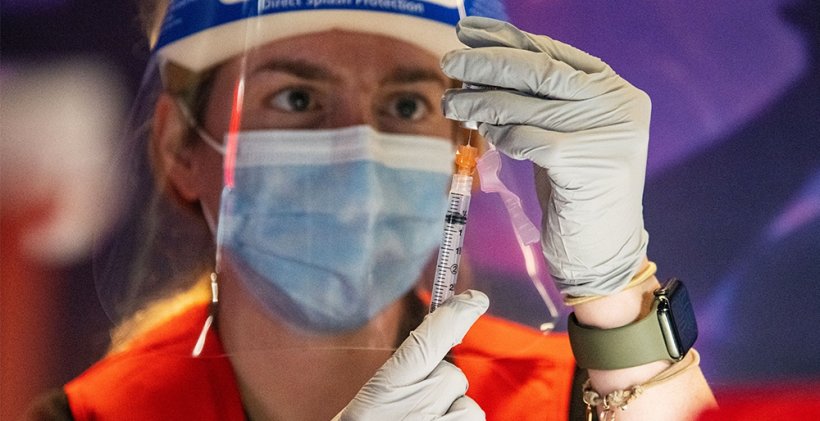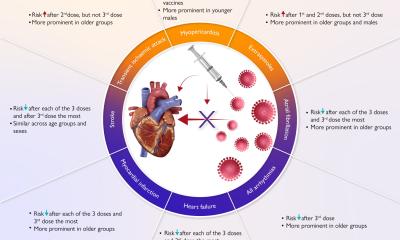
Image source: Georgetown University Medical Center
News • Asymptomatic disease spread
Why vaccines alone may not be enough to end the Covid-19 pandemic
Even as vaccines are becoming more readily available, protecting against the asymptomatic and pre-symptomatic spread of the virus (SARS-CoV-2) that causes Covid-19 is key to ending the pandemic, say two infectious disease experts at the Georgetown University Medical Center.
In their Perspective, “SARS-CoV-2 Transmission Without Symptoms,” published in the journal Science, Angela L. Rasmussen, PhD, and Saskia V. Popescu, PhD, MA, faculty affiliates of the Center for Global Health Science and Security at Georgetown University Medical Center, make the case that symptomless transmission silently drives viral spread and is key to ending the pandemic. “Determining the true transmission capability of asymptomatic and pre-symptomatic cases is inherently complex, but knowledge gaps should not detract from acknowledging their role in the spread of SARS-CoV-2,” the authors write.
Vaccines are great for protecting people against disease, but we don’t yet know how well they work to protect against transmission
Angela L. Rasmussen
“We can’t rely on vaccination alone to control the pandemic,” says Rasmussen. “Vaccines are great for protecting people against disease, but we don’t yet know how well they work to protect against transmission.” Rasmussen says that from a biological perspective, it would be unlikely that a vaccine that protects well against disease would not protect against infection. “But just like the vaccines don’t offer a hundred percent protection against getting sick, they also aren’t a hundred percent likely to protect against transmission.”
In addition, while vaccines reportedly will become widely available in the U.S. by summer, that is not the case in the rest of the world, where the pandemic continues unabated. “Asymptomatic and pre-symptomatic transmission poses a unique challenge for public health and infection prevention mitigation efforts,” says Popescu. “Ultimately this is something we will need to continuously keep our eye on as we move into the next phase of the Covid-19 pandemic and a reduction of disease due to vaccinations.”
Rasmussen and Popescu conclude, “Until there is widespread implementation of robust surveillance and epidemiological measures that allow us to put out these smokeless fires, the Covid-19 pandemic cannot be fully extinguished.”
Source: Georgetown University Medical Center
19.03.2021








